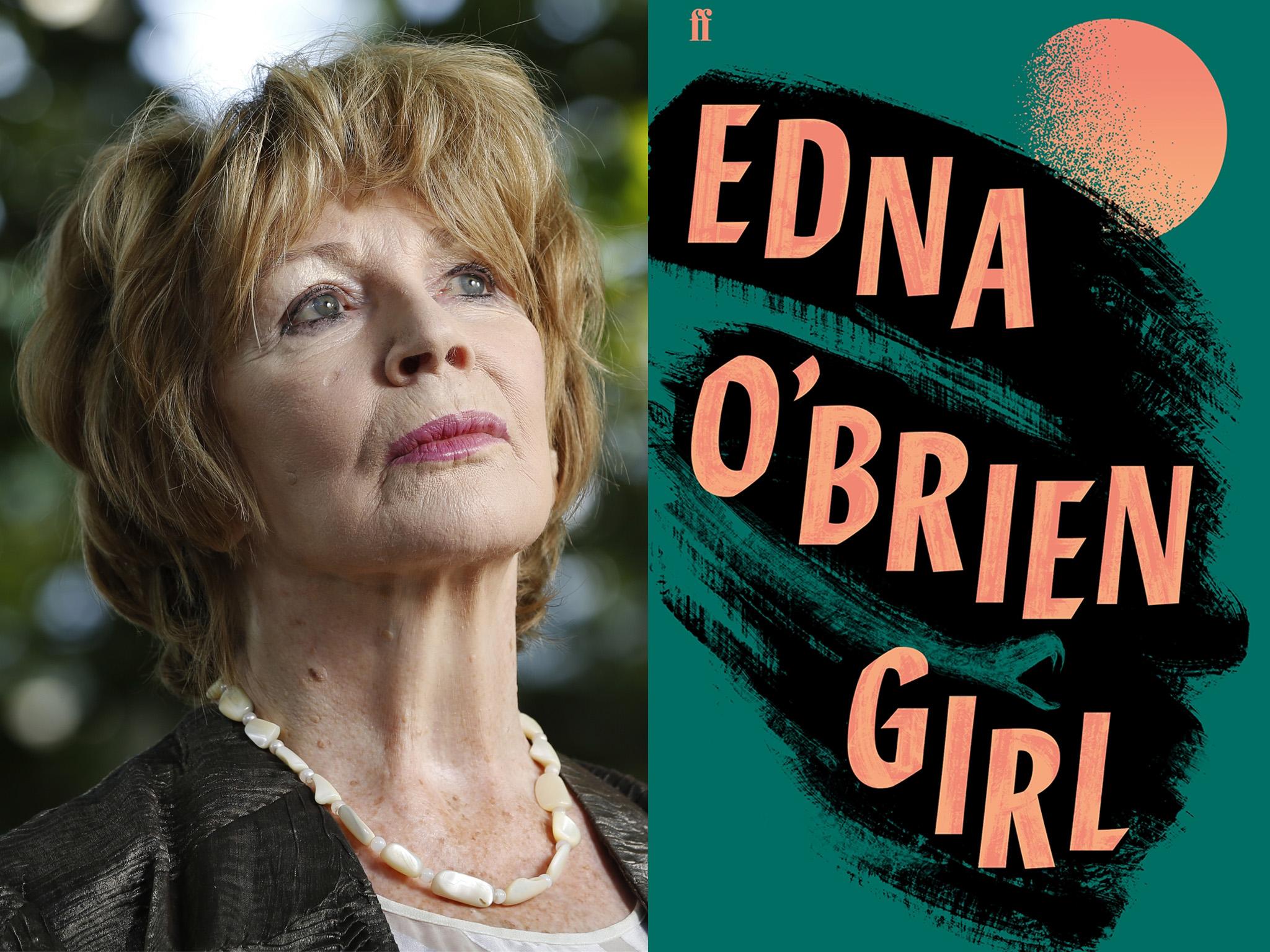Girl by Edna O'Brien, review: Unsentimental but devastating story of schoolgirls kidnapped by Boko Haram
An astonishing act of imaginative empathy on O’Brien’s part, grounded in research trips to Nigeria, and interviews with people involved on the ground

Your support helps us to tell the story
From reproductive rights to climate change to Big Tech, The Independent is on the ground when the story is developing. Whether it's investigating the financials of Elon Musk's pro-Trump PAC or producing our latest documentary, 'The A Word', which shines a light on the American women fighting for reproductive rights, we know how important it is to parse out the facts from the messaging.
At such a critical moment in US history, we need reporters on the ground. Your donation allows us to keep sending journalists to speak to both sides of the story.
The Independent is trusted by Americans across the entire political spectrum. And unlike many other quality news outlets, we choose not to lock Americans out of our reporting and analysis with paywalls. We believe quality journalism should be available to everyone, paid for by those who can afford it.
Your support makes all the difference.Edna O’Brien made her name in the 1960s with The Country Girls trilogy, banned in her native Ireland for its depiction of young women’s sex lives; in 2012, she released her acclaimed memoir, Country Girl. But while the 88-year-old’s latest novel may be called Girl, its subject is a world away from her own experience: this is the imagined story of one of the Nigerian schoolgirls kidnapped by Boko Haram in 2014.
The subject, really, is lost girlhood, as declared by its heart-breaking opening line: “I was a girl once, but not anymore.” And the heart breaks over and over: this is a devastating read, horror and misfortune and injustice piling on its protagonist till you think you can’t bear it, till you remember how many real teenage girls have had to bear worse. Yet it’s told with a spare economy; never sentimentalised, nor sensationalised.
O’Brien tells the story of Maryam, taken to brutalising camps by the terrorists, where she is raped repeatedly, then married off and impregnated. She manages to escape, but faces a punishing trek through forest and desert with a baby she fears she can’t look after. Once back to safety, although traumatised beyond belief, Maryam is politically used as a symbol of the country’s success in fighting Boko Haram. Really, her situation is hardly rosy: having a baby by the enemy means her return to her home and family is shrouded in shame and stigma. Her ordeal is not yet over.
Girl is an astonishing act of imaginative empathy on O’Brien’s part, grounded in research trips to Nigeria, and interviews with people involved on the ground – and many of the Chibok schoolgirls themselves. Anticipating criticism that this is not her story to tell, she came out with fighting talk in an interview: “I do not subscribe to that devious form of censorship … The world is crying out for such stories to be told.” This is surely right – if they are distilled with this much care and respect, by such a talent. Crucially, you feel O’Brien is compelled to tell this story not for the sake of showing off that talent, but for the sake of too-often voiceless women.
Still, there are quirks to her approach. O’Brien, probably wisely, doesn’t attempt to craft any slangy, youthful Nigerian voice, but even so, there are phrases that jump out as inescapably English and old-fashioned. The girls who are warned against “tittle-tattle”, describe themselves as “babes in the wood”, and are jolted “hither and thither” in a truck – the sort of thing that can jolt us out of Maryam’s account. Told with first person narration, Girl also flits, line-by-line, from present to past tense: “Sheets of lightning were streaming down and the whole yard is a blaze of colour.” O’Brien manages this with a strange fluidity, and it layers in an almost subconscious disorientation – which of course suits this story of dizzying displacement and destruction.
O’Brien also captures – even in her restrained style – the hallucinatory shifts in perception arising when human beings are pushed to such extremes. The luxurious hair of an unfaithful wife, buried up to her neck and then stoned to death, afterwards still “seemed to bristle with life”. After being gang-raped, one young woman declares that if she has a baby, “it would be a girl, and that she would name it Jesus. Jesus would be a lady.” Even nature seems to turn against them as they die of thirst under an “alien … malignant” sky: “We were at the rim of existence and we knew it.”
Early on, especially, there are stomach-turning details: Maryam feels “my nostrils being prised open and the muzzle of the gun splaying my nose” when she resists rape. Later, another man raping her instructs his friends to photograph it on their phones: “At moments he slides out for the camera to peer in.” It’s not easy reading. It shouldn’t be easy reading.
But there are moments, too, of grasped and treasured small pleasures. A sunset like “a ball of copper and the sky with skeins of crimson running out it in all directions … specially for us”; the “happy and musical” sound of a clean flowing river; a touch of a woman’s hand to establish friendship. And most of all, Maryam’s fierce love for her baby, which ultimately sounds a note of hope in a desperate tale.
‘Girl’ by Edna O’Brien is published by Faber, £16.99
Join our commenting forum
Join thought-provoking conversations, follow other Independent readers and see their replies
Comments